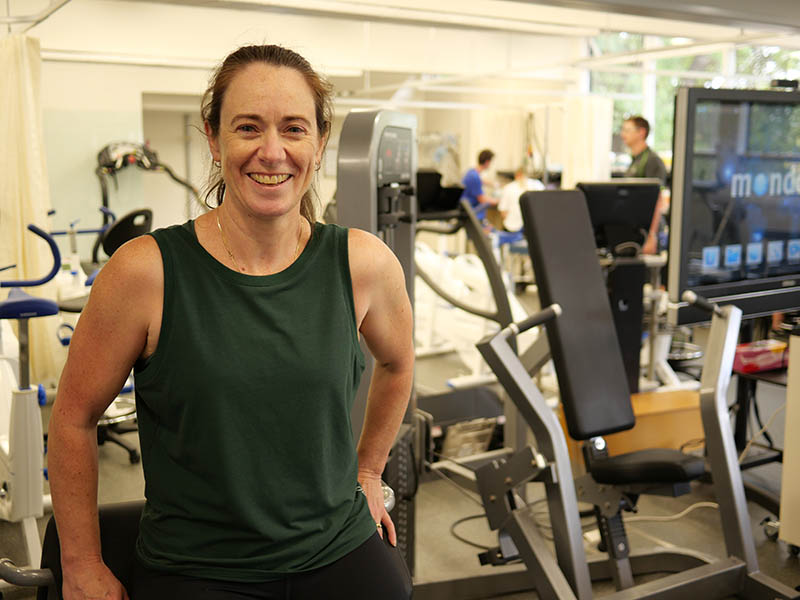When she was a senior chartered accountant, Melissa Pearson had a practical strategy for dealing with the demands of her busy professional life. She scheduled a daily period of exercise in her diary. And it was non-negotiable.
"My administrative staff and boss could see it was part of my day, just like a client meeting; it was critical to me functioning to the best of my ability," says Melissa, who has made it a habit throughout the past 16 years, as she has transitioned from accountant to personal trainer to university student and most recently to university lecturer.
Now a lecturer in Clinical Exercise Physiology at UNE, Melissa credits this dedication to exercise with helping her cope with underlying anxiety and periods of intense stress.
"Deadlines and work-related stress has been a big part of my life," she said.
"Exercise has supported me through some very difficult decision-making and helped me to start new phases in my career.
"When I've experienced a crisis of confidence, exercise has empowered me to believe that I can make sound decisions and given me the strength to believe 'I can do this'.
"During the six months I grappled with leaving the accountancy profession, the physical strength I gained from exercise gave me mental strength to move forward.
"During studies for my PhD, I found that getting up in the morning and going for a run or doing a high-intensity workout made me so much more productive for the rest of the day.
"I would be alert and motivated, and could concentrate better. At the end of the day, a weights session helped me to wind down and process the day's events. I couldn't have completed my PhD without it.
These days, if I know I'm booked for an important or difficult meeting, I might schedule an exercise session just beforehand.
"It helps me to focus, relax, and brings down my anxiety levels. Especially at my busiest, I always make the time because it's my way of exacting some control and an important coping mechanism."
While the benefits of daily exercise are well documented, Melissa believes it is not fully appreciated as an antidote for difficult times.
"When my anxiety comes to the fore, I experience certain physiological changes – I feel restless, on-edge, it feels like I’m trembling or shaking on the inside and I cannot concentrate or focus," she said.
"It's during those challenging times that I notice an even greater benefit from exercise; it helps me to adopt a better mindset and to proceed with clarity.
"And I experienced all this before I learnt about the physiological and mental health benefits of exercise – before I read the research describing how exercise may help us to develop new brain cells, improve our memory and learning, and cause the brain to release chemicals that improve our mood.
"Now I teach all that!"
Melissa's Top Tip: "We can all spare 15-20 minutes for a high-intensity exercise session, even during the busiest of days. It may be as simple as finding a hill to walk up, then walk down to recover. However, if you are not accustomed to physical activity or have a health condition, always seek clearance from a health professional beforehand."


